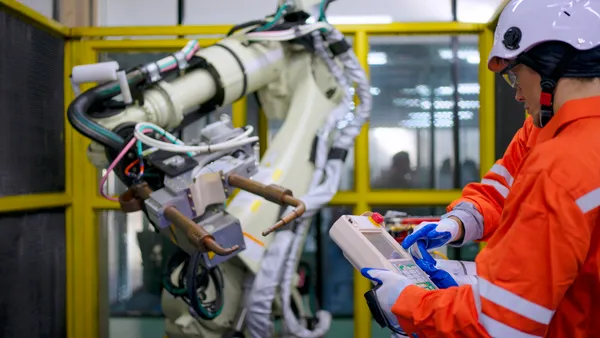Dive Brief:
- Layoffs may be dominating the headlines, but employees remain largely satisfied at work, data released Wednesday from Indeed revealed. Although 82% of respondents said their employers had conducted layoffs, 56% reported an increase in their job satisfaction.
- While 1 in 5 respondents to a PwC survey earlier this year said they planned to quit their jobs, it appears workers have settled in comfortably — at least for now. Ninety-two percent of respondents to Indeed’s survey said they were “completely happy” at work, 81% said their work has a clear sense of purpose and 71% said they weren’t stressed most of the time.
- “The survey results suggest that the work some HR professionals put in during the recent overheated labor market to attract talent may be helping them retain employees now,” Indeed’s editorial team wrote in their post on the findings.
Dive Insight:
Indeed’s findings may seem surprising, given how much burnout dominated the headlines last year, and how high quit rates were. But, as Indeed’s editorial team noted, it could also indicate that all the work HR has been doing to attract and retain talent has begun to pay dividends.
As employers have come to appreciate the importance of talent attraction, retention and satisfaction, HR leaders are increasingly becoming strategic partners, rather than just administrative employees, for the C-suite. The result may be greater consideration for and adoption of HR’s suggestions, including more supportive benefits, higher pay and even full cultural overhauls when necessary.
Over the past few years, HR experts have shared how they have integrated new strategies to acquire and retain talent during the shortage. In August, HubSpot Director of Culture Eimear Marrinan shared how the company has committed to shutting down one week annually to give employees a break. More recently, at the U.S. Chamber of Commerce’s Talent Forward summit, Hilton’s CHRO Laura Fuentes talked about the company’s investment in “second chance” hiring, promotion from within, and learning and development.
More companies may be acting on employee feedback, as many recent strategic pivots appear to align with what workers say they value. Respondents to Indeed’s survey said they highly valued flexibility in their days and hours worked, for example, and also noted that, for the most part, their employers offer such flexibility. Of all widespread changes to emerge from the pandemic, the workplace embrace of flexible schedules may be among the biggest drivers of talent acquisition and retention.
In addition to strategic HR moves, however, it’s possible widespread layoffs and fears of a recession may have also caused some workers to shelve a “grass is greener” mentality and consider the benefits of their current roles. An October survey found that, due to changes in the economy, the percentage of employees saying they planned to quit their jobs had declined considerably.













